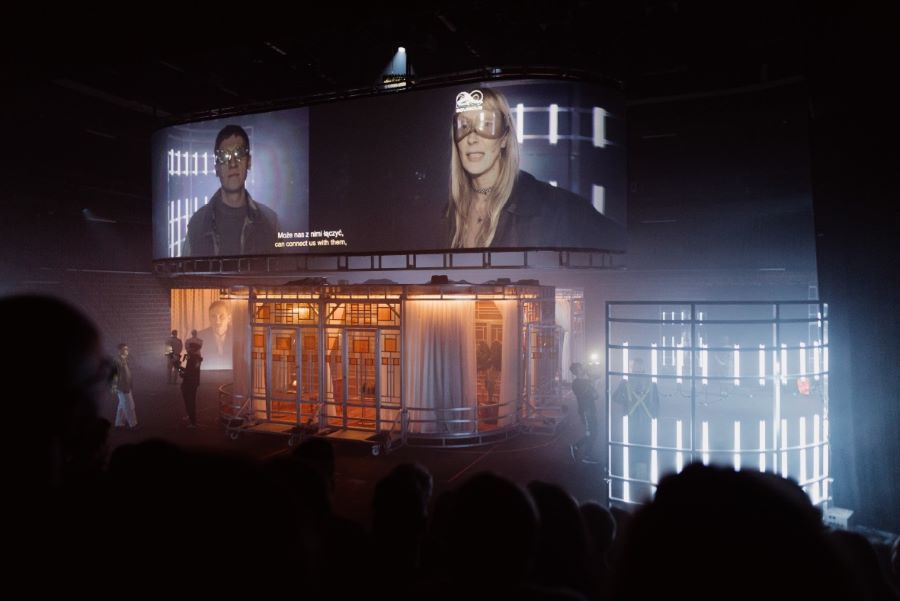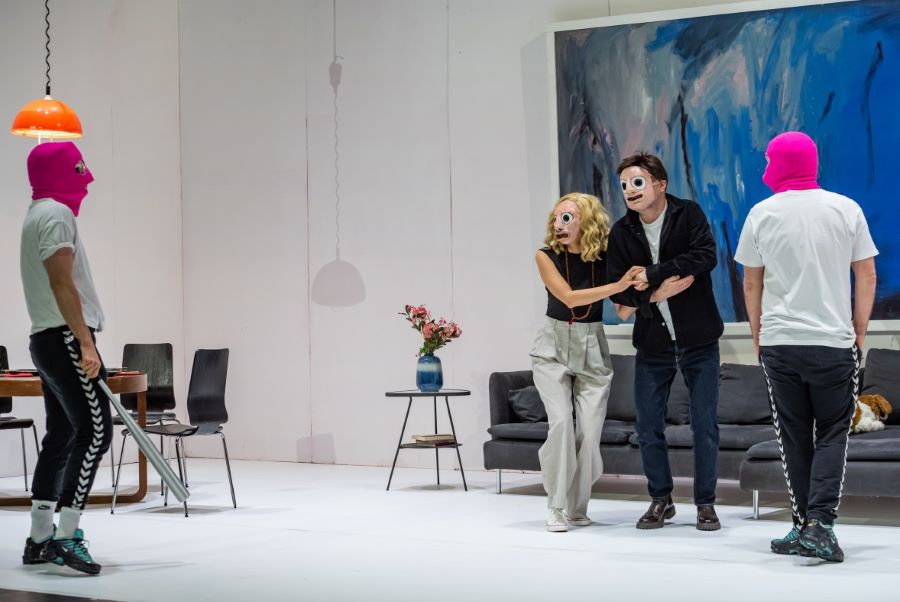“I think the stories we make can make the world better,” the endlessly inventive Polish stage director Jakub Skrzywanek said to me over lunch on Sunday during Kraków’s Divine Comedy Festival, one of Europe’s most adventurous annual theatre events.
He was taken aback at how eagerly I opened my notebook to scribble down the thought. It occurred to me in that moment how desperately I’d needed to hear those words, at a time of political tumult and performing-arts contraction back home in the U.S. It was the reason, too, I’d come back to the festival for the third year in a row: to feel connected and challenged anew to an art form that country after country claims as its own. And in each country this ownership is expressed in ways that nourish and expand the mind, and heart.
Poland, with a storied theatrical past that counts among its giants the likes of Jerzy Grotowski and, more recently, Krystian Lupa, is one of those nations.
Other Americans came too, as part of a delegation organized by the Center for International Theatre Development, founded by the late, great Philip Arnoult. Among the contingent’s 14 members: Tamilla Woodard, who heads the acting program at Yale’s David Geffen School of Drama; Mei Ann Teo, an artistic leader at Ping Chong and Company; playwright Carlos Murillo; Reg Douglas, artistic director of Washington’s Mosaic Theater Company; and Lisa Portes, chair of theatre and dance at UC San Diego.
This is the first of my dispatches as we ricochet from show to show. The juried festival, ending on Dec. 15, consists of nearly two dozen productions, virtually all from Poland, curated by director Bartosz Szydłowski, who also runs his own company, Łaźnia Nowa Theatre, in nearby Nowa Huta. My chronicle is intended both as a record and an appeal to an American culture more prone these days to gazing inward, at a time when our ties to world theatre already feel inadequate and too sporadic.

I was a member of the five-person international jury last year; this time around I’m just a humble attendee. If the first few Divine Comedy offerings are any indication, festival’s prescription for theatrical possibility translates into surprise, consternation, and enlightenment for an American visitor.
The order we sometimes expect theatre to confer on the chaos of existence is affirmed in some of the productions I’ve seen, and defiantly rejected in others. Mothers: A Song for Wartime, by the exciting young director Marta Górnicka, is a moving choral piece of extraordinary polish and passion: 21 Ukrainian, Polish, and Belarusian girls and women marshal a collective cri de coeur in a melodic and spoken-word evocation of war’s particular horrors for women. “Rape,” as spelled out in English in an overhead projection, “is a wartime military strategy in Ukraine.”
The piece, performed at the National Stary Theatre—where the 32-year-old Jakub Skrzywanek is artistic director—is less a document about violence than a demonstration of how voices in unison can be a source of consolation. As Górnicka explained to the CITD delegation the morning after we saw Mothers, the choral form through time has been “a place of life, the place where people were healed by the ritual of singing together.”
Nothing of a healing design is encoded in Fobia, an absurdist exhibition of Grand Guignol that takes satirically homicidal swipes at liberals who proclaim themselves LGBTQ+ allies. Staged at Łaźnia Nowa Theatre in three increasingly transgressive acts by director Markus Öhrn, the play is one sanguineous joke stretched to unfunny limits. (Don’t ask what is done with a phallus attached to a drill.) Revenge against hypocrisy may be sweet, but even a bloodbath, it seems, requires some effective dramaturgy.

I come to the Divine Comedy Festival for its wild triumphs as well as its colossal misfires. Last year, for example, the ambitious rock musical 1989, recounting the era of Polish resistance led by Lech Wałęsa, proved to be a joyful if disjointed Hamilton knockoff. This year, the award for earnest incoherence may go to the extravagantly overproduced Quanta, a four-hour spectacle from the Lithuanian National Drama Theatre about quantum physics and, uh, many, many other things.
A TV studio has been repurposed by director Łukasz Twarkowski as the mise en scene of a hallucinogenic story set mostly in 1938, about a gathering of physicists that includes Madame Curie and Werner Heisenberg. Much theoretical talk ensues, laced with booze, drugs, and sex. Camera operators circle Fabien Lédé’s vivid Art Deco set; machines spark and zap; a dancer draped in fabric spins in the half-light and a couple of Instagram vloggers from 2024 come and go.
The great minds assembled here do not include an editor.
Oh, well. Lots more to come. The lure of a festival like this is that while tickets come in large supply, so also does hope.
Peter Marks (he/him) was the Washington Post theatre critic for 21 years.
Support American Theatre: a just and thriving theatre ecology begins with information for all. Please join us in this mission by joining TCG, which entitles you to copies of our quarterly print magazine and helps support a long legacy of quality nonprofit arts journalism.


